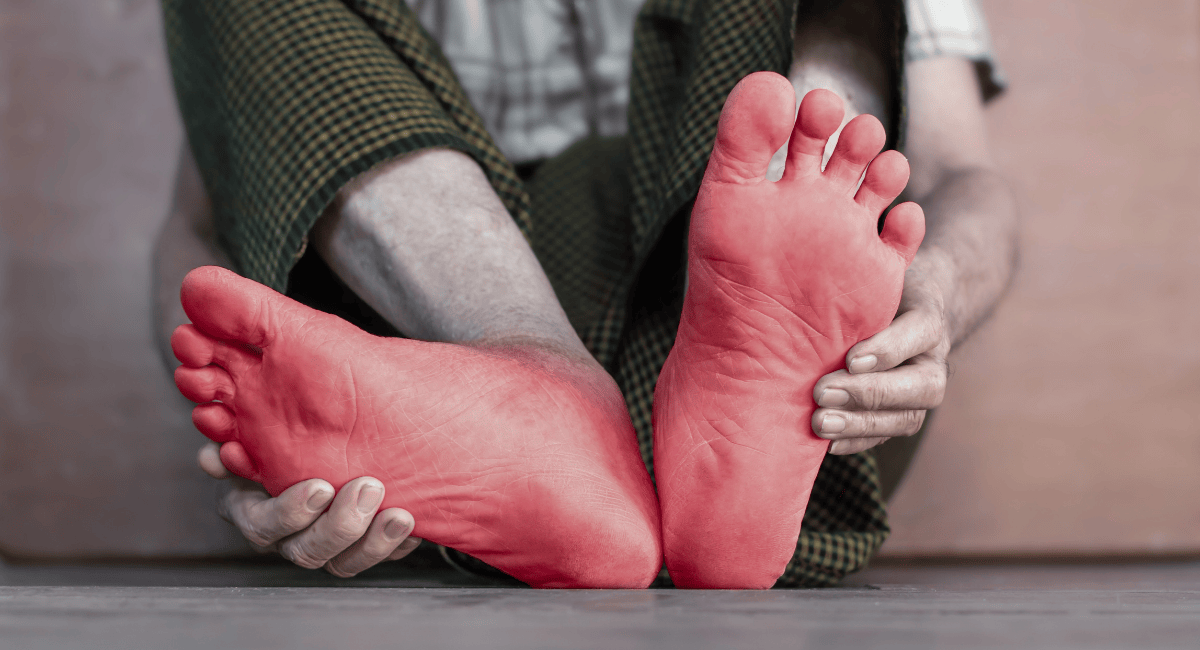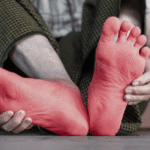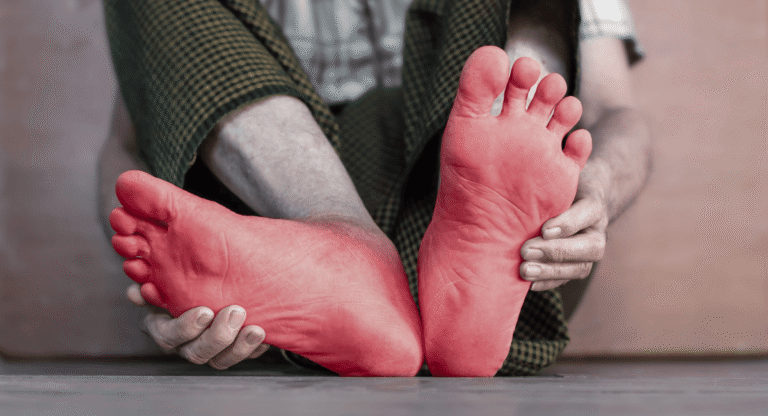
Numbness, burning, or tingling in feet could be linked to poor nutrition.
Your feet do more than just help you walk, they can also show signs of what’s happening inside your body. If you often feel a tingling sensation in feet, burning, or swelling, it could be due to nutritional deficiencies. Ignoring these signals can lead to bigger health problems later.
Here are 5 important foot symptoms and what they may mean.
1. Numbness or Tingling sensation in Feet
If your feet feel tingly, numb, or like “pins and needles,” you may be low in Vitamin B12. This vitamin is important for nerve health. Without it, nerves don’t work properly, which causes tingling or numbness.
Tip: Eat eggs, dairy, meat, fermented foods or fortified cereals. Vegetarians or vegans may need supplements after consulting a doctor.
2. Burning Sensation
A feeling of burning in your feet—especially in the soles—can indicate peripheral neuropathy, often tied to low levels of vitamin B12 or vitamin B6. Other causes can include high alcohol intake or uncontrolled blood sugar.
Tip: Reducing alcohol, and ensuring intake of pulses, nuts, fish and poultry may relieve burning sensations before they worsen.
3. Cold or Pale Feet
When your feet feel unusually cold or look pale, poor circulation or anemia may be to blame. Iron deficiency or B12 deficiency can reduce the blood’s capacity to carry oxygen, making extremities feel cold and pale.
Tip: Eating iron-rich foods (like red meat, black raisins, dark leafy greens such as spinach ) and ensuring B12 intake can improve circulation and warmth in your feet.
4. Slow-Healing Wounds
If cuts, blisters, or sores on your feet take too long to heal, your body might be lacking vitamin C or zinc. Vitamin C is essential for making collagen, which helps repair tissue. Zinc supports immune health and cell renewal.
Tip: Boost these nutrients through citrus fruits, berries, red peppers, nuts, seeds, and meat or fortified foods.
5. Swelling or Edema
Foot swelling may be caused by fluid retention, and one nutritional contributor is high sodium intake. Sodium help maintain fluid balance in your tissues; high sodium can lead to fluid buildup and swelling in your feet and ankles.
Tip: Limit salt intake to 1 tsp per day. Restrict the hidden sources such as packaged and processed foods, canned foods.
What You Can Do: Simple Nutrition Check

- Include foods rich in B12 & B6: eggs, dairy, meat, legumes
- Add iron-rich foods: leafy greens, black raisins, meat
- Eat vitamin C & zinc sources: citrus fruits, nuts, seeds
- Limit intake of sodium in case of swelling in feet
- If you’re vegetarian, vegan, or have health issues, consider supplements after consulting your doctor
Also, don’t ignore these signs. If they persist or worsen, seek medical evaluation. These symptoms may also relate to conditions like diabetes, thyroid issues, or nerve disorders.
Also Read- What Your Morning Urine Reveals About Stress and Hydration
Why This Matters
Ignoring foot symptoms such as tingling sensation in feet as it may lead to more serious nerve damage or complications. The foot often shows early-warning signs of systemic problems because it’s farthest from the heart and gets less blood flow. Acting early by improving nutrition or getting medical help can prevent lasting damage and improve your quality of life.

















